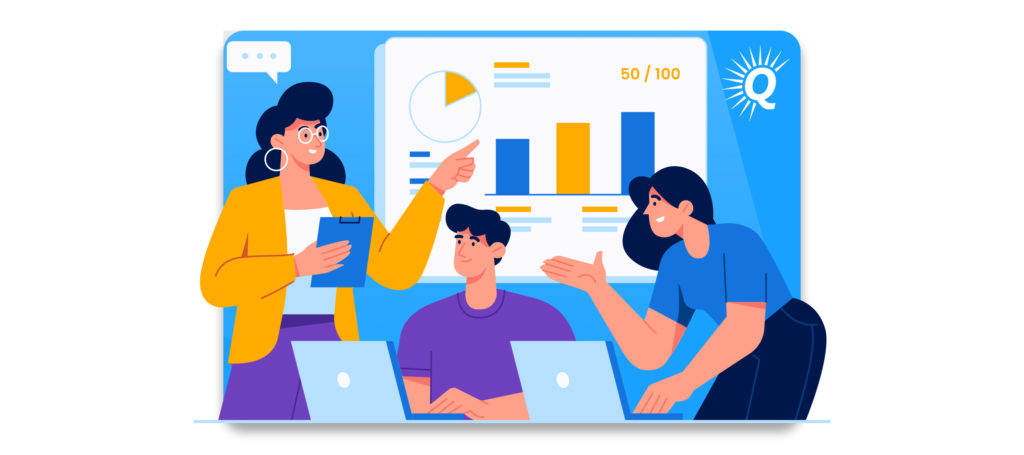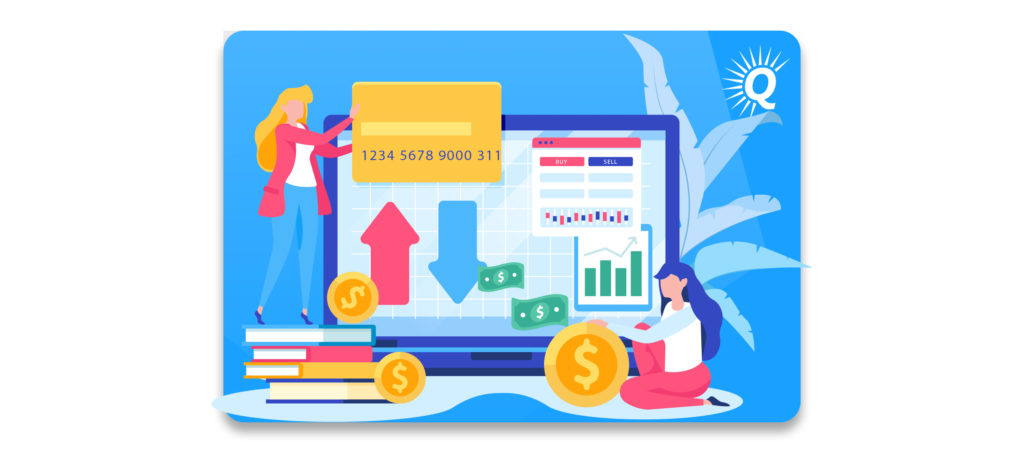Topics:
Never Miss a Beat - Get Updates Direct to Your Inbox
FILTER:


How to Quickly Sell Your Online Business
By Ian Drogin


For owners who have never sold a business before, just the idea can seem like an enormous undertaking. After all, selling a home often takes considerable time, and many businesses are considerably more valuable.
While there’s certainly some work involved in selling an online business, the process doesn’t need to be as overwhelming as many believe.
This article will address several of the core questions of selling your business, including negotiation timelines, reasons you should or should not sell, and how the size of the deal affects the closing timeline. We’ll also talk about ways you can expedite the process.
Let’s start with the most general question.
Thinking of Selling Your Business?
Get a free, individually-tailored valuation and business-readiness assessment. Sell when you're ready. Not a minute before.
How Long Does it Take to Sell an Online Business?
One of the first questions potential sellers ask regarding the process is, how long does it typically take to sell an online business?
For well-positioned online businesses valued between $100,000 and $1 million, it typically takes between 40 and 60 days to sell. Of course, “well-positioned” is the operative term in that sentence.
“For well-positioned online businesses valued between $100,000 and $1 million, it typically takes between 40 and 60 days to sell.”
The position of a business will have a significant impact on how quickly it sells. The above range holds true for many, but some can close in as little as 30 days, while others can take upwards of 90. Larger businesses often take longer than smaller ones (more on this below).


What does it mean for a business to be well-positioned for a quick sale? In addition to the size of the transaction, there are several important elements that affect the closing timeline. Some of these include:
- Documentation
- Transferability
- Your network and relationships
- Due diligence
Documentation
A prospective buyer will only want your business if they can understand it, and the only way they can understand it is through documentation.
When your documentation is solid, a potential buyer can easily see all the important details of your business—search rankings, web traffic, profit and loss statements, trends, and contractor arrangements, to name a few.
“When your documentation is solid, a potential buyer can easily see all the important details of your business”
There are two primary reasons why your business documentation affects how soon you sell.
- More buyers are interested in well-documented businesses.
- It takes less time for a buyer’s questions to be answered when documentation is readily available.
Intuitively, it makes perfect sense that more buyers will want to entertain the acquisition of your business when everything is clear. Readily providing all the important metrics relating to your business such as social media engagement stats, online store conversion rates, and supplier invoices, will create buyers who will critically look at your business.


On the other hand, if your business broker introduces you to a potential buyer and you can’t provide basic documentation for your financial transactions, there’s a good chance they’ll move on to another business. Not only will buyers avoid waiting around for you to provide documentation, but poor records are seen as a big red flag.
In their mind, if a seller hasn’t taken the time to document basic business metrics, it begs the question of what other areas might be lacking?
Additionally, if a buyer does want to move forward, it will be much easier for them to verify the details to complete the sale…
For example, let’s say your documentation is disorganized and incomplete. If that’s the case, each time the buyer has a question, you’ll need to go digging through old records and banking statements, call your accountant, and draft new documents or spreadsheets. Needless to say, poor documentation will add a copious amount of time to your efforts, extensive email exchanges, and frustration for you and the buyer. All of this will drag out the process and extend the transaction closing timeline, leaving room for buyer doubts.


It’s always a wise idea to get all documentation in order before trying to sell your business.
Transferability
The ease with which your business can be transferred to a new owner will greatly affect the closing time.
Businesses that can be easily transferred to a new owner can be sold in much less time than those with conversion barriers.
In certainty terms, barriers to transferability include:
- Legal or licensing requirements
- Specialized knowledge requirements
- Inadequate Standard Operating Procedures
“The ease with which your business can be transferred to a new owner will greatly affect the closing time.”
Businesses with special legal or licensing requirements can sometimes be more difficult to transfer. For example, if you’re a dermatologist and have a business that sells dermatology products that can only be sold by a licensed dermatologist, that makes it much more difficult to find an ideal buyer. In turn, it will likely take you much longer to sell your business.


Similarly, if your business is involved in an unresolved lawsuit, that could also create challenges and delays during the selling process as well.
Another barrier to the transfer is specialized knowledge. If your business requires a rare skill set in order to run it, you will either need to find someone who already has the required skill set, or you’ll need to find someone who is able and willing to be trained. Either path will take a bit more time.
However, if your business utilizes a business model that is widely understood by a segment of entrepreneurs and business people, it will make it easier to find a qualified buyer, thus shortening the transition period. For example, if you’re trying to sell an Amazon business, it’s not going to be too difficult to connect with buyers who are familiar with the FBA model.
The Importance of Your Network and Relationships
Just like it’s easier to get into mountain biking when you have friends who can show you the local trails, the selling process becomes much more straightforward when you’re part of a network of buyers and sellers.
One effective way to access a wide audience of qualified buyers is to work with a business advisor.


Not only can an advisor help you understand the right steps to take to prepare for a successful exit, but they can also connect you with buyers who are eager to acquire online businesses. This can go a long way in helping you execute a quick sale.
In addition to accessing a wide pool of buyers, it’s also essential that you conduct yourself well.
Buyers Want to Work with “Good” Sellers
Just as you wouldn’t do business with someone who was disreputable, buyers examine who owns the business they’re considering.
“It’s important that you’re easy to work with as a seller.”
It goes without saying that any hint of dishonesty or misrepresentation will often lead to buyers running the other way. In addition to conducting yourself with integrity, it’s important that you’re easy to work with as a seller.
While there are some elements that are outside of your control when determining the closing timeline, some factors are completely up to you. How you conduct yourself certainly falls into that category.
Buy a Profitable Online Business
Outsmart the startup game and check out our listings. You can request a summary on any business without any further obligation.
How to Expedite Due Diligence
Building trust throughout the negotiation process may make a buyer less of a stickler during due diligence. If they trust you and see that all of your records are accurate and complete, they’ll be less likely to dig through every small detail in search for something that’s “wrong” with your business.
Even if they trust you, more than likely, there will still be a series of questions and requests.


Taking five days to respond to emails during due diligence will not lead to a quick sale or build buyer confidence. As the seller, you can expedite the process by ensuring you’re available to answer questions and provide documents as requested by you.
If the buyer requests an inventory report, send it to them ASAP. If they have a question about a certain product or ecommerce platform listing fee, figure out the answer and get back to them right away.
Part of expediting the selling process is effectively navigating negotiations and due diligence. Another part is being very clear on why you’re selling your business.
Reasons to Sell Your Online Business
There are many reasons to sell an online business, and it’s important to know yours. Having clarity will not only give you a greater sense of meaning and a more compelling story to share with buyers, but will also ensure that you’re directed in your approach.
A few common reasons owners choose to sell their businesses include:
- Loss of interest
- Other opportunities
- Financial strategy
- Skillset limitations
- Personal challenges
When You Lose Interest in Your Business
People change, and so do their interests. It’s not uncommon for an entrepreneur to start a business with a fiery passion, but later decide they want to do something else. When such a situation arises, selling the business is the natural solution.
Sometimes, owners don’t think about selling their business until they’re already sick and tired of running it. If you feel that you’re ready to move on, it’s important to ask yourself the question: is my business ready to move on.


If your business is well-positioned, then perhaps you can move forward and sell your business quickly. However, if you get a valuation and discover a list of tasks that would improve its value dramatically, it might be worth grinding it out until your business is worth more money.
Since there’s often some preparation to do before going to market, it’s always a wise idea to plan ahead.
Selling Your Business to Pursue Other Opportunities
Entrepreneurs love opportunities, so it’s no surprise that a lot of owners sell their businesses in order to free up energy to pursue other ventures.
If you’re someone who thrives on new beginnings, you may reach a point at which your current business doesn’t provide you with the thrill that it once did. If you stumble upon a new ecommerce business opportunity that looks promising, it might be worth selling your previous business to consolidate your focus on your next big online business idea.
How Does Selling Affect Your Overall Financial Strategy?
When you’re running a business, it can sometimes seem like it’s your entire world. This is especially true for entrepreneurs whose personal finances are heavily dependent on the success of the business.
While it’s easy to view your business like a job, it’s important to remember that it’s also a valuable asset. Depending on your situation, it’s likely that it’s your most valuable asset.
“For many owners there comes a point at which it makes sense to move equity out of your business to diversify your investments.”


From a personal financial perspective, for many owners there comes a point at which it makes sense to move equity out of your business to diversify your investments. Even if your business is relatively stable, there is still risk involved whenever a high percentage of your equity is in one place.
Selling your business is a great way to free up capital to invest elsewhere. Sometimes, this may mean using your funds to purchase multiple smaller businesses. Perhaps, you can use the proceeds from selling your e commerce site to create an ecommerce business portfolio and use each ecommerce website to support the growth and online presence of the others.
Being Honest About Your Skill Set Limitations
The skillset required to build a business from zero to $1MM isn’t the same skill set needed to take it from a million to ten million.
Some entrepreneurs are great at coming up with a solid business idea and getting it off the ground. Others are better at taking existing businesses and growing them to become a household name. Often, the same person isn’t good at both.
“If you’re one of the creative types who’s great at founding businesses, it’s important to be honest with yourself about whether or not you have what it takes to lead it indefinitely.”
If you’re one of the creative types who’s great at founding businesses, it’s important to be honest with yourself about whether or not you have what it takes to lead it indefinitely. As it grows, complexity grows as well. Unless you’re great at creating systems, hiring employees, and managing large teams, it might be wise to consider selling while you’re ahead and letting someone else take over the reins.


When Personal Challenges Force You to Sell
Sometimes, small business owners encounter a personal challenge that forces them to sell. Health issues, the death of a close family member, or financial obligations can all affect someone’s ability to lead their business.
Personal life challenges can put sudden pressure on owners to sell quickly. If the business is doing well, the owner can hope for a solid offer and a quick closing period. If the business isn’t in great shape, they may come under pressure to accept a less than desirable offer.
Reasons to Wait on Selling Your Business
Many owners who get a business valuation discover that they’re not yet ready to sell. In fact, at Quiet Light, we often give our clients a list of tasks that we suggest they complete before going to market.
Some of the primary reasons owners should wait on selling their business include:
- Documentation issues
- Obvious untapped growth
- Negative growth trends
Documentation Issues
As mentioned above, it’s essential that your business is well documented before going to market.
When a business owner comes to us to sell their business, one of the first things we look at is their documentation practices. If they don’t have clean financials and records to verify, we usually suggest that they speak with their accountant and get their records in order before moving forward.
“When a new owner takes over, it’s important that they’re well prepared to succeed.”
Documentation also refers to the Standard Operating Procedures (SOPs) for the business.


When a new owner takes over, it’s important that they’re well prepared to succeed. Therefore, it’s always advisable to create detailed SOPs for every aspect of running the business.
Untapped Growth
If there are promising growth opportunities sitting right in front of your nose in your business, it might be a good idea to take advantage of the untapped potential. Doing so can be an easy way to give your earnings a quick boost, which in turn can increase your business’s valuation.
Negative Growth Trends
Negative growth trends considerably hurt a business’s value. Therefore, if your business is trending downward, it can often be worth spending some time turning things around to receive a higher valuation.
Sometimes, negative growth trends are the result of a significant industry disruption or shift in the market. If that’s the case, it might be difficult to quickly reverse a negative growth trend.


On the other hand, some negative growth trends are caused by supply chain disruptions or other temporary issues. In such instances, it’s probably a good idea to hold off on selling in order to resolve the challenges and get your business back on track. Often, it can take several months or longer to reverse a negative growth trend, so you might need to be patient before selling to the right person.
Deal Size and Impact on Time to Close
All else being equal, larger businesses take longer to close than smaller ones. For example, a $20M business will likely take significantly more time to sell than one that is worth $200,000. There are a few main reasons for this:
- Larger deals have more moving parts and are complicated
- There are usually more decision-makers in larger deals
- Larger deals have greater financial requirements
- Due diligence and training is often longer for larger businesses
“All else being equal, larger businesses take longer to close than smaller ones.”
Larger Businesses Generally Have More Moving Parts
Not surprisingly, larger businesses are generally more complicated than those that have less revenue. This isn’t always the case, but it typically holds true for most online companies.
For example, an Amazon business that has $30MM in annual revenue probably has a lot of product listings, each of which has a supply chain that needs to be managed. Additionally, each product also has its own advertising, customer service, and Quality Control processes that need to be thoroughly examined and understood by the buyer.
“Because larger deals are often more complex, they require more time for research, due diligence, and for completing the transition period.”
Even a highly trained team might need to spend several weeks or longer digging into all of the business details.


On the other hand, an ecommerce store with a simple balance sheet, a narrow market scope, and just three products can probably be examined in far less time. This can lead to a much shorter sales cycle.
Because larger deals are often more complex, they require more time for research, due diligence, and for completing the transition period.
There Are More Decision-Makers Involved in Larger Deals
Many smaller deals occur between individuals who are operating alone. In such cases, there are very few decision-makers involved (perhaps just the buyer, seller, and their spouses).
Fewer decision-makers mean the entire process can happen more quickly.
As an individual online seller, you can simply make choices based on your own personal interests and financial strategy. If you receive an offer, all you need to do is talk it over with your spouse and perhaps call a few trusted friends to get opinions. In such cases, you could receive an offer on Monday and accept it on Tuesday.
“Fewer decision-makers means the entire process can happen more quickly.”
Individual buyers who aren’t taking on debt are equally liberated to make decisions on their own.
Larger deals don’t often don’t have that luxury. This is especially true of large private equity firms that acquire businesses.


If you have a larger online business (<5-10 MM) it’s not unlikely that you’ll be selling to a private equity firm, which means there’s an entire team working together to acquire your business. With more people involved, it’s a lot more likely that the deal will take longer and the close rate may be lower.
Having said all that, there are private equity firms that can move extremely quickly.
Larger Deals Have Greater Financial Requirements
Larger deals are often more complicated from a financing perspective, which can extend the sales cycle.
For individual buyers, decision-making autonomy means that they’re often able to deploy capital without going through a complicated approval process. When an SBA loan is involved it sometimes takes a bit longer, but the entire process can still be completed relatively quickly.
“Larger deals are often more complicated from a financing perspective, which can extend the sales cycle.”
Larger deals often require financing approval from multiple investors or financial managers. Again, more people typically mean more time.
Sales Price is Based on SDE Multiple
The value of most online businesses is determined by multiplying the Seller’s Discretionary Earnings by the SDE multiple.
Not surprisingly, determining a business’s value requires digging through key financial information regarding the business. Larger businesses have more financial details and transactions to examine than smaller ones, and this process typically takes more time for larger businesses (another reason that larger deals take longer to close).
“The value of most online businesses is determined by multiplying the Seller’s Discretionary Earnings by the SDE multiple.”
One of our previous articles about discretionary earnings goes into more detail about how the SDE is determined and applied.


Seller’s discretionary earnings are calculated by adding the owner’s salary to EBITDA. Then, the multiple is applied to arrive at the business’s fair market value.
When doing a Saas valuation of a large Saas business, the value is sometimes determined based on a revenue multiple. This usually applies when revenue is seen as a more important metric than cash flow.
Get Financials In Order to Sell Quickly
Sloppy financials can dramatically slow down the selling process. At Quiet Light, if a small business owner comes to us without a proper income statement or other crucial documents, we always start by giving them a list of financial management tasks to complete.
There are a few reasons why it’s important to get your financials in order before selling your business:
- Ensure an accurate valuation
- Eliminate wasteful spending
- Identify untapped potential
- Ensure a smooth due diligence process
Get an Accurate Business Valuation
First of all, it’s impossible to perform an accurate business valuation without having each financial statement in order. After all, the value of a business is almost entirely dependent on its financial performance. Without being able to understand the finances, it’s impossible to understand the business itself.
“It’s impossible to perform an accurate business valuation without having each financial statement in order.”


For many owners, getting financials in order requires working closely with an accountant to document all money within the business. This means looking at each business credit card account, savings account, cash flow statement, and sometimes even personal finance records (if your personal finances are intermingled with the small business).
Most businesses operating in the online marketplace should use accrual accounting practices.
Eliminate Wasteful Spending
It’s not uncommon for owners to get financials in order and then discover that there’s a lot of wasteful spending that they didn’t even know about. This can apply for both physical and digital product businesses.
In such cases, it’s sometimes a good idea to hold onto your business in order to eliminate unnecessary expenses and improve your business’s value.


For example, sometimes owners find out that some of their Facebook ad campaigns have been completely unprofitable and should be turned off immediately to avoid losing money with each online sale they generate.
In other cases, an FBA business owner may learn that their margin on certain products is too low and needs to be addressed. In some, the data may support expanding the business’s content marketing strategy to reach a larger target audience to increase its passive income. Ultimately, there are a thousand and one things that you can discover just by looking critically at the financials.
Identify Untapped Potential
Just as owners sometimes discover wasteful spending by looking at their finances, they also can identify obvious untapped potential. When this happens, the owner can make one of two choices:
- Capitalize on the potential themselves
- Use the opportunities they discover to market their business to potential buyers
If your newly created financial report reveals that affiliate marketing on the Facebook marketplace ads have been wildly successful for attracting potential customers, you can choose to hold onto your business in order to double your efforts and improve the value of your business before sale. Similarly, looking at the data may lead you to discover an entirely new marketing strategy that you haven’t tried yet.
“Just as owners sometimes discover wasteful spending by looking at their finances, they also can identify obvious untapped potential.”
Alternatively, you can choose to use the knowledge to communicate your business to potential buyers in a more marketable way. Being able to tell buyers exactly where the potential lies with supporting financial data can greatly increase the appeal of your business.
Ensure that Due Diligence Goes Smoothly
Sound financials make it much easier to navigate the due diligence process for both you as well as the buyer.
For you as the seller, having your financials in order means that you’re able to quickly provide any financial statement that the interested buyer requests.
“Sound financials make it much easier to navigate the due diligence process for both you as well as the buyer.”
For the buyer, clear financials means that they can easily understand everything that transpires in your business.
Not surprisingly, this means that due diligence can move along smoothly and quickly, greatly hastening the closing on your small business.
Conclusion
In summary, there are a few key steps within your control that can help you quickly sell your business:
- Create a desirable business
- Ensure that your business is easily transferable
- Get your financials in order
- Conduct yourself with integrity and professionalism throughout the process
By following the right process, you’ll be well-positioned to enjoy a smooth and profitable conclusion to the business you’ve built.
Thinking of Selling Your Business?
Get a free, individually-tailored valuation and business-readiness assessment. Sell when you're ready. Not a minute before.





